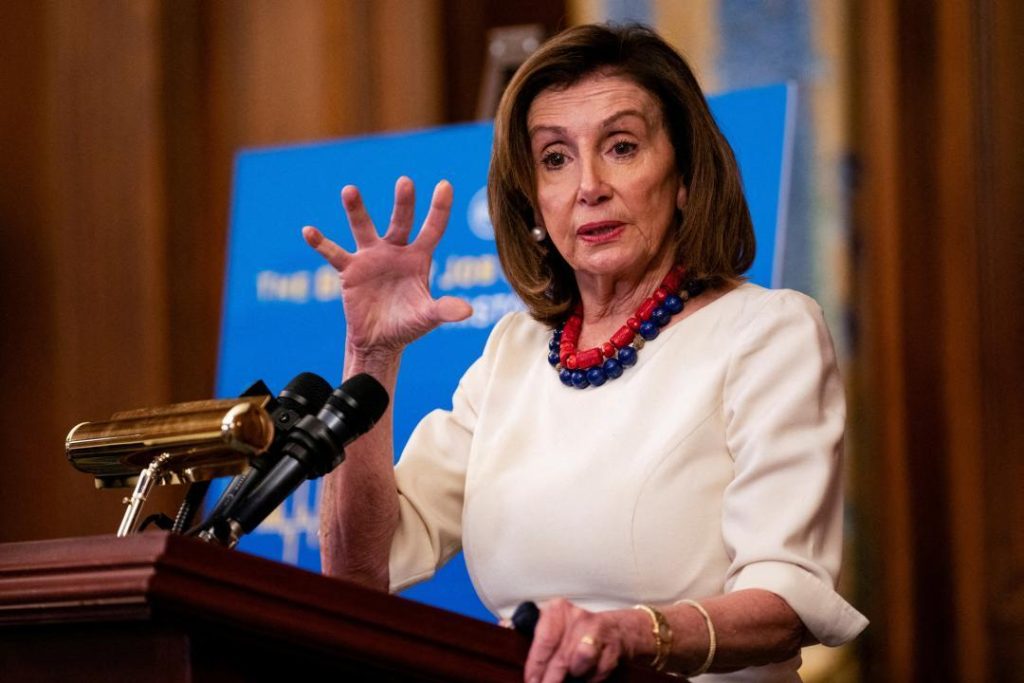
What is the PELOSI Act & Why is it Named After Former US Speaker Nancy Pelosi?
The Preventing Elected Leaders from Owning Securities and Investments (PELOSI) Act, reintroduced by US Senator Josh Hawley, aims to prohibit lawmakers and their spouses from holding or dealing in stocks while holding office. This act has sparked a heated debate, with many questioning the motivations behind the naming of the bill. In this blog post, we will delve into the details of the PELOSI Act and explore why it is named after former US Speaker Nancy Pelosi.
The PELOSI Act has been reintroduced by Senator Hawley, who claims that the legislation is designed to prevent conflicts of interest and ensure that lawmakers prioritize the well-being of the country over their personal financial interests. Under the proposed law, lawmakers would be allowed to invest in mutual funds (MFs), exchange-traded funds (ETFs), and Treasury bonds, but would be prohibited from holding individual stocks or dealing in securities.
The idea behind the PELOSI Act is to prevent lawmakers from using their positions to make personal profits or influence policy decisions for financial gain. Senator Hawley argues that the current system is flawed, as lawmakers can use their access to non-public information to make informed investment decisions, while ordinary citizens are left in the dark.
The PELOSI Act is named after Nancy Pelosi, the former Speaker of the US House of Representatives, who has been accused of enjoying major stock market gains during her term in office. Critics argue that Pelosi, who is a wealthy individual, used her position to make millions of dollars in profit, while ordinary Americans struggled to make ends meet.
Pelosi’s net worth has been estimated to be around $120 million, with a significant portion of her wealth tied up in stocks and other investments. Her husband, Paul Pelosi, is a wealthy investor who has made millions of dollars through his investments in companies such as Apple and Google.
The PELOSI Act has been widely criticized by some lawmakers, who argue that it is an attack on the free market and an attempt to restrict individual freedoms. However, supporters of the bill argue that it is a necessary step to ensure that lawmakers prioritize the interests of the country over their own personal financial interests.
In response to the criticism, Senator Hawley has argued that the PELOSI Act is not about restricting individual freedoms, but about preventing conflicts of interest and ensuring that lawmakers are held to a higher standard. He has also pointed out that many other countries have similar laws in place, and that the PELOSI Act is designed to bring the US in line with international standards.
The PELOSI Act has also been criticized for being overly broad and vague, with some arguing that it could have unintended consequences and restrictions on individual freedoms. However, supporters of the bill argue that the current system is flawed and that the PELOSI Act is a necessary step to ensure that lawmakers are held accountable for their actions.
In conclusion, the PELOSI Act is a controversial piece of legislation that has sparked a heated debate in the US. While some argue that it is a necessary step to prevent conflicts of interest and ensure that lawmakers prioritize the well-being of the country, others argue that it is an attack on the free market and an attempt to restrict individual freedoms. The act is named after Nancy Pelosi, who has been accused of enjoying major stock market gains during her term in office, and has been reintroduced by Senator Josh Hawley, who claims that it is designed to bring the US in line with international standards.






